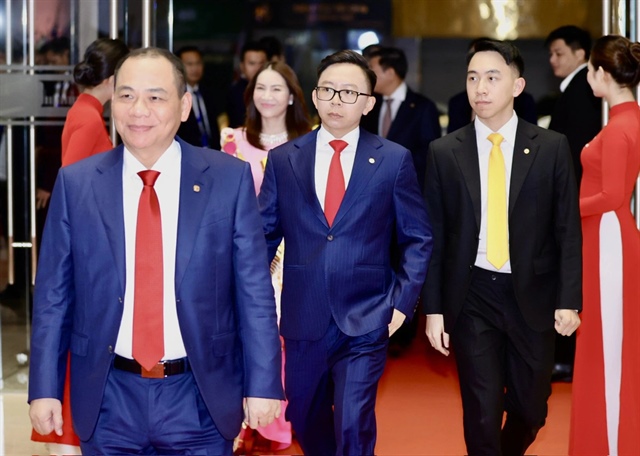Vietnam to be a new processing and manufacturing centre of the world
Vietnam to be a new processing and manufacturing centre of the world
Vietnam is expected to become a new processing and manufacturing centre of the world after 2015, thanks to its inexhaustible potential and advantages, as well as the developed countries’ shifting their processing and manufacturing bases to developing countries.
This view was echoed by many speakers at the international workshop, titled “Vietnam to be a new processing and manufacturing centre of the world after 2015”, organised by the State Bank of Vietnam in collaboration with the Centre Committee of the Vietnam Fatherland Front, and the World Bank on October 24 in Hanoi.
Foreign investors are increasing investments in the processing and manufacturing sectors in Vietnam. In 2011, the foreign capital in the processing and manufacturing sectors made up 50 per cent of the total foreign direct investment (FDI) inflows to the country. The figure increased to 76.6 per cent in 2013 and 72 per cent in 2014. 80 of the 101 countries and territories investing in Vietnam have had projects in these two sectors.
“In the upcoming ten years, a total investment capital sum of $90 billion, equalling Vietnam’s GDP, will be poured in the processing and manufacturing sectors of Vietnam. These sectors will make up 80 per cent of Vietnam’s export turnover,” said Victoria Kwakwa, World Bank country director for Vietnam in the East Asia and Pacific region.
According expert reviews, Vietnam holds many advantages to become a new processing and manufacturing centre of the world in the upcoming 20 years. Vietnam has an important strategic location in the Asia-Pacific region, highly appreciated by the world as a logistics centre of the region, both in sea routed and air ways. All investors prefer production alternatives with low logistics expenditures facilitating the movement of supply chains.
Besides, Vietnam has large arable land, fertile soils, abundant irrigating water supplies and enriched biological resources. These are world-class favourable conditions for a booming and advanced organic agriculture—a foundation for Vietnam to evolve into a world centre for food security.
Vietnam is currently a member of economic organisations and international forums, including WTO, ASEAN, ASEM, and APEC, and has signed bilateral trade agreements with the US, Japan, and South Korea. Furthermore, Vietnam has become a member of the Trans-Pacific Partnership Agreement (TPP), opening numerous opportunities for Vietnamese economic development.
Along with the advantages, the Vietnamese government should build and implement short-term and long-term goals to turn Vietnam into a processing and manufacturing centre of the world soon.





















